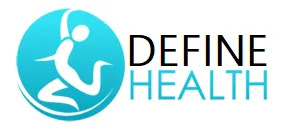Oily hair : Its Care
Oily Hair and Its Care
There is a world of difference between oiled
hair and oily hair. Oiled hair is the slicked hair, which makes you look cool
and stylish. Oily hair is a greasy condition of the hair. This is quite a messy
situation for your hair. Oily hair occurs due to the presence of excessive oils
in the scalp. These oils and organic chemicals end up ruining your hair. Oily
hair is considered to be greasy and frizzy. Sometimes, this greasy hair gives
off some offensive odor. If untreated, oily hair can be not only damaging, but
also embarrassing. Therefore, you should take some steps to avoid and treat this
problem. Below is a look at the causes, symptoms, diagnosis and effective
treatment of oily hair.
History of Oily Hair
Oily hair is quite a new affliction for people.
This is because, before the origin of oily hair, people had gained healthy hair
from natural enhancers and therapies. For most of time, the hair could be
improved by natural and healthy organic oils. However, the problem started with
the development of synthetic and chemical based oils and gels. People started
using products, which were made of artificial conditioners and chemicals. As a
result, the oils in their hair became more prominent. People became prone to
oily hair, when they started using artificial enhancers for their hair.
Various Causes
There can be a variety of reasons behind the
problem of oily hair. These causes need to be discussed, as they reveal some of
our myths about hair care products. A fairly common cause is excessive use of
shampoos, conditioners and other hair supplements. Use of shampoos and
conditioners is essential for the repair of hair growth. However, the
inappropriate use of shampoos can only add to the oil content in the scalp.
Moreover, frequent shampooing wipes out the layer of protective oil in the
scalp.
Brushing and combing your hair indiscriminately
can also make it oily and greasy. Generally, regular brushing of hair layers
the hair with sebum. However, in excess of sebum, the protective layer of hair
is reduced. As a result, the scalp becomes oily. Hormonal secretions play an
important part in contributing to oily hair. During the attainment of teenage
or during the menopause periods, there is an increase in the production of male
hormones called androgens. These androgens make the scalp and skin oily.
Frequently styling your hair with intensive treatments can also damage the hair
and make it oily.
It would seem incredulous to assume that food
and diet have any relation with the problem of oily hair. However, this is a
proven truth. Often, the wrong and harmful diet can prove to be disastrous for
your hair. Foods, rich in fats and oils, end up making your hair oily and
greasy.
Symptoms of Oily Hair
As said above, the symptoms of oily hair are
quite simple to detect. Quite often, with the excess of oil in the scalp, the
hair ends up being oily and greasy. You can feel it if you touch your hair,
there will be a sticky sensation on touching the hair. Owing to this
stickiness, you would not be able to comb or brush your hair perfectly.
Moreover, after a time, your scalp would reek of an offensive odor of oils and
hormonal secretions.
Diagnosis of Oily Hair
You can determine on your own, whether your
hair is oily or not. You can take a comb or hairbrush. Then, try to comb and
brush your hair smoothly with the brush. If your hair is oily, the brush would
stick in the middle. Moreover, you can check if your hair smells bad. This is
also a sign of oily hair.
Treatment of Oily Hair
There are quite a number of ways
to treat the problem of oily and greasy hair. Mild shampoos and lots of water
are two of the most applicable cures for oily hair. You can use a mild shampoo,
which can treat a dry scalp. It should be remembered that a dry scalp is more
susceptible to the action of oils and hormones. Try to make the scalp moist
with gentle shampoos. Do avoid the conditioners, as they can add to the oily
content.
Washing your hair is highly recommended for people. You should ideally wash your hair with lots of water. In this way, you can take in and retain moisture and porosity for your hair. If your hair is really very oily, then you can also wash and rinse your hair with vinegar. This helps out to reduce the grease in your hair.
For more subtle methods of
treatment, you can opt for natural therapies like lemon juices. These can also
be rubbed on the scalp. Eating a healthy and nutritious diet can also be a cure
for your oily hair. Eat neutral substances and foods. Avoid the consumption of
oily and fat-rich foods.




